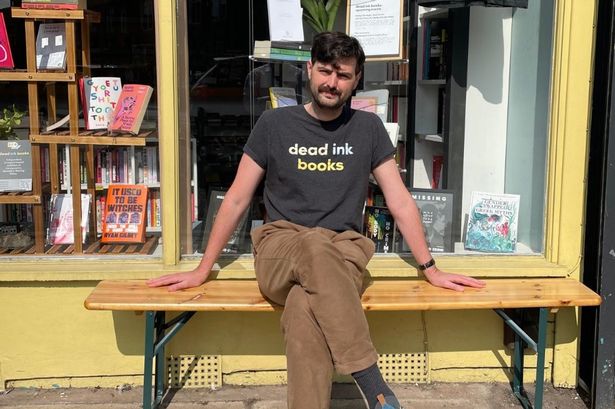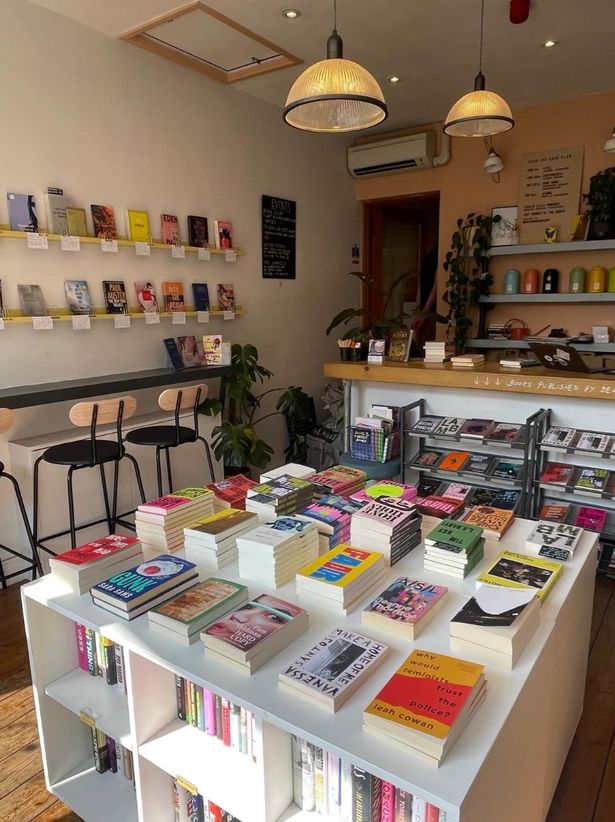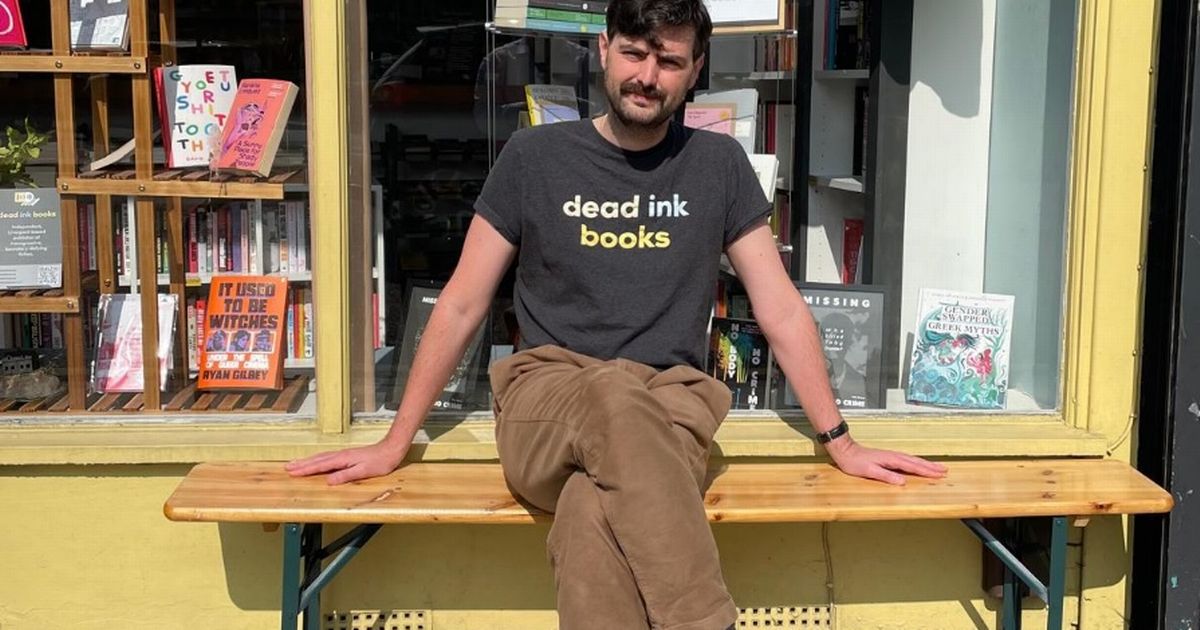Dead Ink Books is taking the publishing world by storm Nathan Connolly is the editor of Dead Ink Books in Smithdown Road
Nathan Connolly is the editor of Dead Ink Books in Smithdown Road
On one of south Liverpool’s most notable streets, lies a bright yellow shop that, despite its vibrant frontage, may not be well known to many residents of the city.
Based at 375 Smithdown Road is Dead Ink Books, which opened in 2022. The book shop is also the firm’s publishing headquarters, allowing people in the city an accessible route in to see the work of one of the most exciting young publishing companies in the country.
Nathan Connolly, Dead Ink’s Editor, points out that people often think publishers work from ivory towers, doing deals behind closed doors.
By having a shop in the heart of Liverpool, and by having that shop double as their publishing HQ, Nathan says: “People can come in and speak to us, they can see that its not something remote we’re doing, we don’t want to ever be invisible.”
As well as having one of the most brightly coloured shop fronts on the bustling Smithdown Road, Dead Ink is also home to a team of people that have championed northern voices and platformed work that’s too often been pushed to the fringes of the literary establishment.
Dead Ink began operating full-time in 2015 thanks to a grant from Arts Council England. Their breakthrough success came two years later when they published Know Your Place: Essays on the Working Class by the Working Class.
The idea for this collection came from Nikesh Shukla, whose own collection, The Good Immigrant, was foundational in shaping the conversation around race in publishing. After the Brexit vote in 2016, Nikesh threw down the gauntlet and suggested that someone should create a working class version of his work.
Nathan jumped at this. His career in publishing had been made harder by his own class background and he wanted to ignite conversations about class.
 Dead Ink Books in Smithdown Road
Dead Ink Books in Smithdown Road
When he graduated from university in 2009, unpaid internships based in London had been the first rung on the corporate ladder. He couldn’t afford to live without being paid for his work so he didn’t get to have the experiences others padded their CVs with.
Nathan says he kept pushing on and the advent of the internet allowed him to get his voice out there via The Nightlight, a website he set up to share short fiction and essays as a kind of digital zine. He’d continue to work on The Nightlight and other DIY creative projects while working for Big Issue North in a number of roles before going all in on Dead Ink.
Know Your Place was exactly what Nathan, and Nikesh, had had in mind. The collection received considerable media coverage and shortly after its release, major publishers began including class as a factor in their diversity reporting. The Bookseller also began releasing an annual class issue.
Building on this success, Dead Ink became one of Arts Council England’s National Portfolio Organisations in 2024, which allowed them to expand their publishing slate to 12 books per year.
Of their releases, many have been lauded for their quality. The Doriad by Missouri Williams won the 2022 Republic of Consciousness Prize, while Lamb by Matt Hill was included as one of The Times’ 2023 Best Science Fiction Books.
Lost in the Garden was awarded Best Fiction at the 2024 Nero Awards. In recent months, Dead Ink’s passionate supporters have raised over £42,500 through a Kickstarter campaign to raise money for the re-release of The Eden Book Society’s 1993 collection of previously unseen horror stories. Their initial target had been £20,000.
The crowning glory in the short life of Dead Ink came earlier this year when the company was named the joint winner of the North England Small Press of the Year Award at the British Book Awards.
These successes are even more impressive given the difficulties faced by independent publishers in recent years.
On this, Nathan states: “The knock on effects of the pandemic have definitely had an impact, the war in Ukraine has increased paper prices, with Brexit, it is much harder for smaller publishers to sell in Europe.”
Some publishers have had to close under this pressure. Dead Ink has grown despite it and eyes an even brighter future.
But how big can the company go on to become? Nathan says the sky is the limit, adding: “Our plan is to grow and become a real contender in the publishing space.
“We don’t see it as reasonable that we should consider ourselves as a kind of parochial small press forever just because we’re based in the north… we are able to compete with mid-size independent publishers coming out of London and Edinburgh and put ourselves on the map.”
“We’ve always positioned ourselves not as a northern publisher,” he adds, but as a publisher based in the north.”
